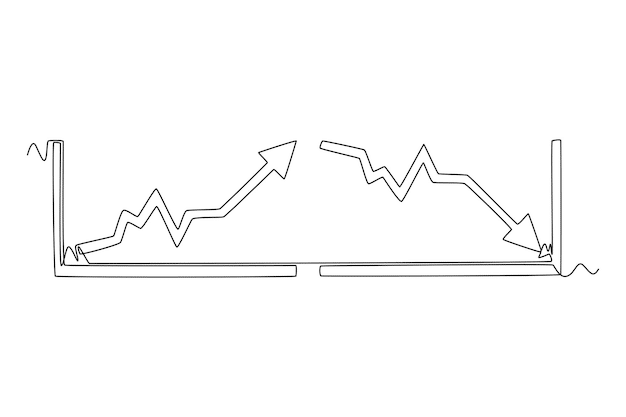Unveiling the Hidden Costs of Debt: A Long-Term Financial Impact Guide

The Hidden Costs of Debt extend beyond interest rates, significantly impacting long-term financial health through diminished savings, restricted investment opportunities, increased stress, and delayed achievement of financial goals.
Debt is a common part of modern life, but many people only focus on the immediate costs like interest rates and monthly payments. Understanding the hidden costs of debt is crucial for long-term financial planning.
Debt’s Impact on Your Savings and Investments
One of the most significant hidden costs of debt is its impact on your ability to save and invest. When a significant portion of your income goes toward debt repayment, less is available for building an emergency fund or investing for retirement.
Reduced Savings Potential
High debt levels can significantly reduce your capacity to save. The money that could be put into savings accounts or retirement funds is instead used to pay off debts. This compounds over time, resulting in a substantial loss of potential savings.
Limited Investment Opportunities
Debt can also limit your investment opportunities. When you’re burdened with debt, you may be less likely to take calculated risks in the market, missing out on potential gains. Moreover, the resources needed for investments are often diverted to debt repayment.

- Opportunity Cost: Every dollar spent on debt repayment is a dollar you can’t invest, potentially missing out on significant returns.
- Compounding Effect: The impact of reduced savings and investments is amplified over time due to the compounding effect of investments.
- Risk Aversion: High debt levels can make you more risk-averse, causing you to miss out on potentially lucrative investment opportunities.
- Financial Security: Lower savings and investments mean less financial security in the long run, making you more vulnerable to unexpected expenses or job loss.
In summary, the impact of debt on your savings and investments is a critical hidden cost that can significantly affect your long-term financial health and security. Understanding this impact is the first step toward making informed financial decisions and prioritizing debt management.
The Mental and Emotional Toll of Debt
Beyond the financial strain, debt can take a significant mental and emotional toll. Constant worry about repayments, fear of defaulting, and the stress of managing multiple debts can lead to anxiety, depression, and other mental health issues.
Increased Stress and Anxiety
The burden of debt often leads to increased stress and anxiety levels. Constantly worrying about making payments on time and the potential consequences of falling behind can create a perpetual state of unease.
Relationship Strain
Financial stress caused by debt can also strain relationships. Disagreements over spending habits, budgeting, and debt management are common sources of conflict in households burdened with debt.

- Sleep Disturbances: The stress of debt can disrupt sleep patterns, leading to insomnia and other sleep-related issues.
- Reduced Productivity: Constant worry can reduce focus and productivity at work, potentially affecting career advancement and income.
- Social Isolation: Financial stress can lead to social isolation as individuals may avoid social activities due to the cost.
- Mental Health Issues: In severe cases, debt can contribute to mental health issues such as depression, anxiety disorders, and even suicidal thoughts.
In conclusion, it’s important to recognize the mental and emotional toll that debt can take, and to take steps to mitigate these effects through stress management techniques, financial counseling, and open communication with loved ones. Addressing both the financial and emotional aspects of debt is essential for overall well-being.
Debt’s Effect on Future Opportunities
Having substantial debt can limit your future opportunities, influencing your career choices, geographic mobility, and overall life decisions. The need to prioritize debt repayment can constrain your freedom to pursue your passions or make strategic changes in your life.
Career Limitations
Debt repayment obligations can restrict your career choices. The need for a stable income to cover debt payments may lead you to accept jobs that are less fulfilling but offer higher salaries.
Delayed Personal Goals
Debt can delay the achievement of personal goals such as starting a family, buying a home, or pursuing further education. The financial strain of debt makes it difficult to save for these significant life events.
The pressure to repay debt can limit your geographic mobility. You may be less likely to relocate for a new job opportunity or to move to a more desirable location if it means incurring additional expenses.
- Entrepreneurial Restrictions: High debt levels can discourage you from starting your own business due to the added financial risk and uncertainty.
- Education Limitations: Debt can prevent you from pursuing advanced degrees or certifications that could enhance your career prospects.
- Reduced Flexibility: Overall, debt reduces your financial flexibility, making it harder to adapt to changing circumstances or pursue new opportunities.
In conclusion, debt can have far-reaching effects on your future opportunities, limiting your career choices, delaying personal goals, and reducing your overall financial flexibility. Recognizing these potential limitations can help you make informed decisions about managing your debt and planning for the future.
The Impact on Credit Score and Future Borrowing
Your credit score is heavily influenced by your debt management. High debt levels and missed payments can negatively impact your credit score, leading to higher interest rates on future loans or even denial of credit.
Higher Interest Rates
A lower credit score results in higher interest rates on mortgages, car loans, and credit cards. Over time, these higher interest rates can significantly increase the total cost of borrowing.
Difficulty Obtaining Credit
A poor credit history can make it difficult to obtain credit when you need it. This can affect your ability to rent an apartment, purchase a car, or even get a job, as some employers check credit scores as part of the hiring process.
Maintaining a good credit score requires diligent debt management. Paying bills on time, keeping credit utilization low, and avoiding excessive debt are essential for preserving your creditworthiness.
- Credit Utilization Ratio: A high credit utilization ratio (the amount of credit you’re using compared to your total available credit) can negatively impact your credit score.
- Payment History: Late or missed payments are major red flags for lenders and can significantly lower your credit score.
- Credit Mix: Having a mix of different types of credit (e.g., credit cards, loans) can improve your credit score, but only if managed responsibly.
In summary, debt management has a direct impact on your credit score, which in turn affects your ability to borrow money in the future. Maintaining a good credit score requires responsible debt management habits and a long-term commitment to financial health.
The Long-Term Cost of Interest Accumulation
Interest is the price you pay for borrowing money, and over time, it can significantly increase the total cost of your debt. Understanding how interest accrues and its long-term impact is crucial for effective debt management.
The Power of Compounding Interest
Compounding interest means you earn interest not only on the principal amount but also on the accumulated interest from previous periods. While this is beneficial for investments, it can be detrimental for debt, causing the balance to grow exponentially.
Repayment Strategies and Interest
Different repayment strategies can affect the total amount of interest you pay over the life of a loan. Making extra payments or choosing a shorter loan term can significantly reduce the interest you accumulate.
Understanding the different types of interest rates (fixed vs. variable) is essential for managing debt effectively. Fixed interest rates provide stability, while variable rates can fluctuate, potentially increasing your repayment costs.
- Loan Term: Longer loan terms mean lower monthly payments but higher total interest paid over the life of the loan.
- Interest Rate: Even small differences in interest rates can result in significant savings or additional costs over the long term.
- Debt Consolidation: Consolidating high-interest debt into a lower-interest loan can save you money on interest payments and simplify repayment.
In conclusion, the long-term cost of interest accumulation is a critical factor in understanding the true cost of debt. By understanding how interest works and implementing effective repayment strategies, you can minimize the amount of interest you pay and accelerate your debt payoff.
Strategies for Mitigating the Hidden Costs of Debt
Mitigating the hidden costs of debt requires a proactive and strategic approach. Creating a budget, prioritizing debt repayment, seeking professional advice, and building an emergency fund are essential steps.
Creating a Budget and Tracking Expenses
A budget helps you understand where your money is going and identify areas where you can cut expenses to free up funds for debt repayment. Tracking your expenses can also reveal spending patterns that contribute to debt accumulation.
Prioritizing Debt Repayment
Prioritizing debt repayment means allocating extra funds to pay down high-interest debts first. The debt avalanche and debt snowball methods are two popular strategies for prioritizing debt repayment.
An emergency fund provides a financial cushion to cover unexpected expenses without resorting to debt. Aim to save at least three to six months’ worth of living expenses in an easily accessible account.
- Debt Avalanche Method: Focus on paying off the debt with the highest interest rate first, regardless of the balance.
- Debt Snowball Method: Focus on paying off the debt with the smallest balance first, regardless of the interest rate.
- Seeking Professional Advice: A financial advisor or credit counselor can provide personalized guidance and support for managing debt.
In summary, mitigating the hidden costs of debt requires a comprehensive strategy that includes budgeting, prioritizing debt repayment, building an emergency fund, and seeking professional advice when needed. By taking these steps, you can minimize the negative effects of debt and improve your long-term financial health.
| Key Point | Brief Description |
|---|---|
| 💸 Reduced Savings | Less money available for emergency funds and retirement. |
| 🧠 Mental Stress | Anxiety and stress due to constant worry about repayments. |
| ⚠️ Limited Career | Constraints in career choices due to need for stable income. |
| 📉 Credit Score | Negative impact leading to higher interest rates. |
Frequently Asked Questions (FAQ)
▼
The main hidden costs include reduced savings and investments, mental and emotional stress, limited future opportunities, negative impact on credit score, and long-term interest accumulation.
▼
Debt can cause increased stress, anxiety, sleep disturbances, and even contribute to more severe mental health issues like depression. Managing financial stress is crucial for overall well-being.
▼
Yes, the need for a stable income to repay debt can restrict career choices. It may discourage entrepreneurship or prevent you from pursuing further education for career advancement.
▼
High debt levels and missed payments can negatively impact your credit score, leading to higher interest rates on future loans and difficulty obtaining credit when you need it.
▼
Strategies include creating a budget, prioritizing debt repayment (avalanche or snowball method), building an emergency fund, and seeking professional financial advice when necessary.
Conclusion
Understanding the hidden costs of debt is essential for making informed financial decisions and achieving long-term financial security. By recognizing these costs and implementing effective strategies, you can minimize the negative impact of debt and improve your overall financial well-being.





